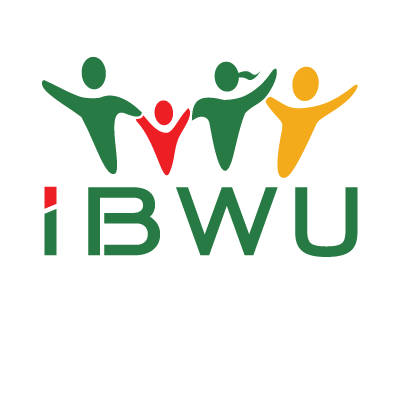[vc_row][vc_column][vc_column_text][/vc_column_text][vc_column_text]
IBWU COMPLIANCE STANDARDS
IBWU has a mission, drive and goal to foster genuine change in Nigeria and this requires time, commitment, partnership and funding. With this comes several risks, responsibilities and regulatory obligations for us as a Non-Profit charitable organisation to observe, manage and uphold.
We recognise the perception and reality of corruption and commit to a policy and standing of zero-tolerance to bribery and corruption. It is our firm belief and driver that IBWU must strive at all times to maintain its integrity and reputation as well as that of our stakeholders.
In addition, we value IBWU’s principles of good governance and ethical standing and we uphold these principles by observing the guidance and code of conduct enshrined in the following standards:[/vc_column_text][/vc_column][/vc_row][vc_row][vc_column][vc_toggle title=”Antibribery and Corruption Standard”]
[/vc_toggle][vc_toggle title=”Antimoney Laundering Standard”][/vc_toggle][vc_toggle title=”Code of Ethical Conduct”][/vc_toggle][vc_toggle title=”Data Protection Standard”][/vc_toggle][vc_toggle title=”Fund Raising Standard”]Key Principles and Behaviours
(a) The work of all fundraising organisations will be; Legal, Open, Honest and Respectful.
(b) A legal principle underpinning fundraising is that all funds raised for a particular cause MUST be used for that particular cause.
(c) Fundraisers MUST NOT denigrate other individuals or organisations.
(d) Organisations MUST NOT exaggerate facts relating to the potential beneficiary.
(e) Organisations MUST NOT take advantage of mistakes made by the donor.
(f) Fundraisers MUST take all reasonable steps to treat a donor fairly, enabling them to make an informed decision about any donation. This MUST include taking into account the needs of any potential donor who may be in a vulnerable circumstance or require additional care and support to make an informed decision.
(g) Fundraisers MUST NOT exploit the credulity, lack of knowledge, apparent need for care and support or vulnerable circumstance of any donor at any point in time.
(h) If a fundraiser knows or has reasonable grounds for believing that an individual lacks capacity to make a decision to donate, a donation MUST NOT be taken.
(i) A donation given by someone who lacked capacity at the time of donating MUST be returned.
(j) Organisations MUST NOT engage in fundraising which:
- Is an unreasonable intrusion on a person’s privacy;
- Is unreasonably persistent; or
- Places undue pressure on a person to donate.
(k) Fundraisers MUST NOT continue to ask an individual for support if:
- that person clearly indicates – by word or gesture – that they do not wish to continue to engage; or
- they have reasonable grounds for believing, in the course of their engagement with the individual, that they are in vulnerable circumstances which mean they are unable to make an informed decision to donate.
Requesting, Accepting & Refusing Donations:
(a) When using donor information in a case study or any other type of publicity, organisations MUST comply with any duties of confidentiality that they have and comply with relevant data protection laws if publishing a case study that includes information that could identify a donor.
(b) Fundraisers MUST NOT encourage existing donors in any way to change an existing charitable donation to another fundraising organisation.
(c) The Board Members MUST act in the best interests of IBWU’s charitable principles when deciding to accept or refuse a particular donation.
Rewards, Incentives & Benefits:
(a) Fundraising organisations MUST ensure that benefits are appropriate for the organisation to be giving and proportionate to the size of the gift.
(b) Fundraisers MUST be aware of when benefits nullify potential tax relief such as Gift Aid or top-up payments available under any small donation rules. If benefits do prevent the donation qualifying under Gift Aid or the small donation rules, organisations MUST NOT attempt to reclaim tax on the sum.
After the Donation:
(a) Any specified reporting requirements to which a donation is subject to MUST be complied with.
(b) Fundraising organisations MUST ensure that accepted donations are used to support the cause in accordance with the conditions attached to the donation, which may arise from donor’s stipulations or representations made by the charity as to the uses of the funds.
Complaints:
(a) Organisations MUST have a clear and publicly available complaints procedure which MUST also apply to any Third Parties fundraising on their behalf.
(b) When dealing with complaints organisations MUST ensure that:
- complaints are investigated thoroughly and objectively to establish the facts of the case, avoiding undue delay; and
- complaints are responded to fairly, proportionately and appropriately.
(c) Organisations MUST regularly review any lessons to be learnt from complaints and use that learning to inform future fundraising activity.
(d) Fundraising organisations MUST have a clear and published internal procedure for members of staff and volunteers to report any concerns they may have regarding their organisation’s fundraising practice and this include but are not limited to the following:
- the type of issues that can be raised and the process for doing so;
- how the person raising a concern will be protected from victimisation and harassment;
- how and what the organisation will do in response to receiving such information; and
- how an individual can escalate their concerns on fundraising practice to the Fundraising Regulator or the Independent Fundraising Standards and Adjudication Panel for Scotland in the event that internal consideration is not possible.
Returning Donations:
Donations MUST only be refunded in line with any policies or in exceptional circumstances. It may not be lawful to return a donation and fundraisers MUST take advice from legal advisers or any applicable Charity Commission before doing so.
[/vc_toggle][vc_toggle title=”Due Diligence Standard”][/vc_toggle][/vc_column][/vc_row]
